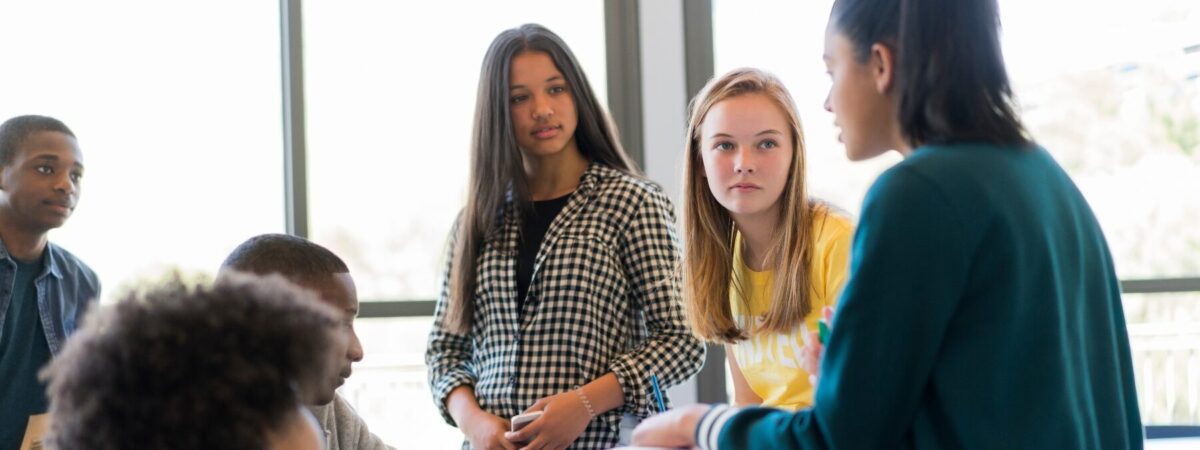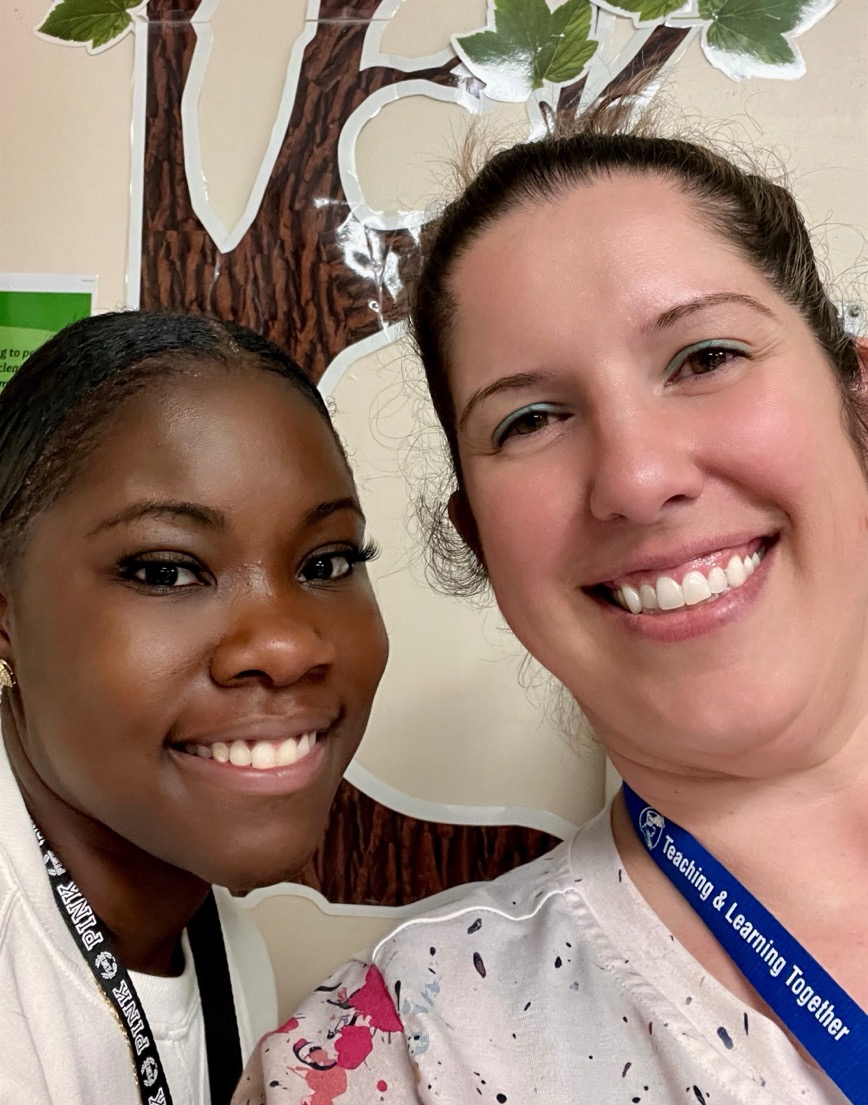
In the Capital School District in central Delaware, MaryJane Long is an instructional coach supporting educators with instruction in the classroom across all content areas, and Taresha Scott is a middle school social studies teacher. Below, MaryJane and Taresha share how they have collaborated with students at the Kent County Secondary Intensive Learning Center (KCSILC) to embed meaningful discourse into the classroom.
Drawing insights from Ellevation, a software designed to support multilingual learners (MLLs), MaryJane adapted various discussion-based models for our learners. She began with implementing a variety of strategies that support the development of civil discourse in the classroom. The models we explored provided our students with frameworks to structure our discussions effectively. Although our students are not all multilingual learners, the resources proved invaluable in guiding our planning.
Taresha set the stage for engaging discussions with her sixth- through eighth-grade social studies classrooms by introducing the concept of discourse using topics compelling to students, such as minimum wage, the ability of people who have been convicted of a felony to clear their records and get a job, and the availability of resources in different neighborhoods. By sharing sentence starters and discussion prompts derived from MaryJane’s research, Taresha empowered students to express their thoughts and opinions confidently and speak in a clear manner. Her use of various strategies, such as ask-and-answer techniques and a range of question complexities, allowed Taresha to cater to learner variability, ensuring every student had a voice in the conversation.
Despite our efforts, we encountered challenges. Our students often face significant barriers, including frequent absences and behavioral issues. The dynamic nature of our classes—often small and ever-changing—made it difficult to maintain the momentum of discussions. Moreover, sensitive topics can sometimes lead to frustration, resulting in dysregulation among students. Taresha has an excellent relationship with her students and was able to intervene and work one-on-one with kids when more personalized support was needed.

—MaryJane Long and Taresha Scott
A key takeaway from our experience is the importance of consistency. Even when discussions faced hurdles, we learned that persistent efforts are necessary for fostering a culture of dialogue. For students with challenging behaviors and traumatic backgrounds, discussion-based teaching has proven essential in filling gaps in their learning.
Implementing Socratic Circles has been a journey of growth for both students and educators. While challenges persist, the commitment to engaging students in meaningful discourse is invaluable. With each discussion, we inch closer to creating an environment where every voice is heard, and every opinion matters. The road may be bumpy, but the rewards of fostering dialogue and critical thinking are worth the effort.